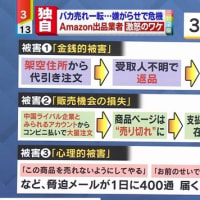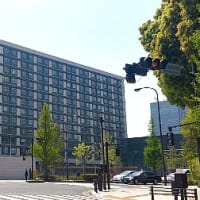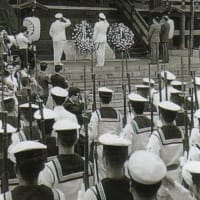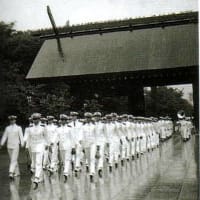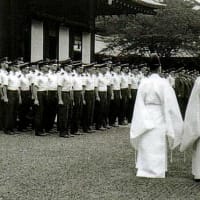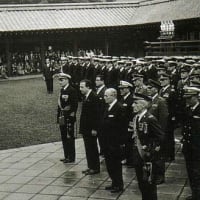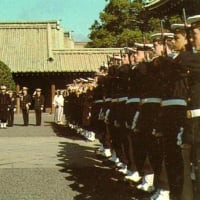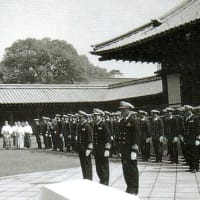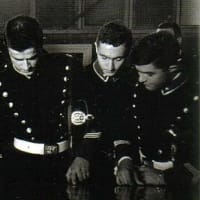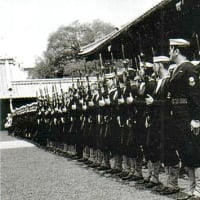This is an article from a Japanese news paper ,Yomiuri Shinbun on December 16,2008. translated into English later.The article is about a comparative research of the Us and Asian country's history textbooks conducted by Stanford Univercity, and this is a part of outcome of the study, which examined the role of high school history textbooks in the formation of historical memory. This will show you how Japan and Japanese are misunderstood throughout the world on the textbook issue. As far as I can see, Japanese today just become to aware that they should a little more care about their own country as every country's people do.
Comparative study of history textbooks of Japan, America, China, Korea and Taiwan, conducted by Stanford University
"Japanese textbook is the most controlled of all, it neither admires the war,nor fuels patriotism"
There have been concerns about worsening relationships among Northeast Asian countries due to the differences in historical perceptions about the past war.
The ASIA-PACIFIC RESEARCH CENTER (Shorenstein APARC) at Stanford University conducted a project of a comparative study of the history textbooks used today in Japan, China, Korea, America and Taiwan.
The result shows that Japanese history textbooks don't glorify the war and are the most controlled of all the textbooks in the study.
We will introduce the following two articles. One is the result of the study written by Mr.Peter Duus, professor of Japanese History, one of the major members of the study. Another is a summary of the study written by Mr. Daniel C. Sneider, the former correspondent of a U.S. Paper in Tokyo.
Implicit Lesson
The Japanese history textbooks for high schools have gained a bad reputation in the foreign mass media for the last 30 years.
They have been criticized for not paying much attention to the responsibility for starting the Pacific War or bringing suffering into people's lives in the regions Japan occupied. Some even maintain that the content of these books has become increasingly patriotic.
The study of "Divided Memories and Reconciliation" at APARC disclosed the fact that such criticism over Japanese history textbooks was incorrect. They don't seem to be patriotic, instead they seem to inspire the least patriotism of all.
They don't glorify the war, emphasize the importance of the military, or describe acts of heroism on the battlefield. They are timelines that only give accounts of historical events without describing narratives.
What the Japanese history textbooks signify is an implicit lesson. They tell us that the expansion of militarism is stupid and war entails enormous cost to the public. The description in the Japanese history textbooks have perfectly kept in step with Japan's post-war foreign policies that refused to possess military forces as a diplomatic policy. The Japanese Education Ministry guidelines lay weight on the development of friendly cooperative relations with neighboring countries and the need for peace and stability in Asia and the rest of the world.
Strange Result
In contrast, most of the East Asian countries claim in their guidelines of school textbooks that the history textbook should enhance the people's ethnic self-esteem and national identity (a sense of belonging). This is seen as being a basic role in the history education of the country.
Enhancing ethnic self-esteem sometimes produces a strange result. For example the Korean history textbook doesn't mention the main events during the war, which the other countries' textbooks refer to, such as the war that occurred in China in 1937, the Pearl Harbor attack and the atomic bombing of Hiroshima or Nagasaki. Instead it focuses entirely on the Korean's resistance movement against Japan's colonial administration or their cultural development in literature. In other words Korean's history textbook is a story of the ethnic strife's process for liberation.
Ethnocentric Description
It is probably the Chinese history textbook that describes the war in the most patriotic way. It is filled with descriptions of heroic military operations, and even suggests that it was China, chiefly the Communist Party of China, that ultimately defeated Japan. There are no references to either the war which took place in the Pacific or the importance of a role that the allied country had played there. It also doesn't highlight the role that the atomic bombing had played in ending the war, rather it says that the determining factors for ending the war were the general attack against Japan demanded by Mao Tse-tung and the Soviet Union's entry into the war.
The history textbooks of China and Taiwan say that the victory in the Anti-Japanese War wiped out China's disgrace for a century, which the Imperialism force brought on her by disregarding her rights and benefits.
The Chinese textbook also insists that China has kept on struggling for anti-imperialism even after the war against the US that it regarded as a new enemy. New China is described as the winner of the Korean war in the book, stating that they stopped the US from trying to chase "the progressive forces " away from Asia.
the article of the Yomiuri Shinbun http://blogimg.goo.ne.jp/user_image/11/c6/ecd7fcf1156e71e0147b1f09a9398905.jpg
THE WALTER H. SHORENSTEIN ASIA-PACIFIC RESEARCH CENTER
http://aparc.stanford.edu/research/divided_memories_and_reconciliation/











